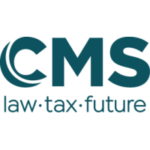-
Does your jurisdiction have a class action or collective redress mechanism? If so, please describe the mechanism and outline the principal sources of law and regulation and its overarching impact on the conduct of class actions in your jurisdiction.
Yes, there is a class action mechanism in France. It was, at first, introduced into French law in 2014, for consumer law matters only (Law no. 2014-344, referred to as the “Hamon Law”). It was then extended to health and cosmetics, discrimination (in particular in the workplace), the environment and the protection of personal data in 2016. Since 2018, class actions can also be brought in the field of real property lease (through consumer law class actions). Class actions can also be brought in administrative matters (i.e. actions against the French State).
Under the regime developed based on the Hamon Law, class actions in France were therefore limited to some areas (thereafter the “Former regime”) and there were some limitations as to whom could initiate such claims and how.
In order to implement the EU Directive 2020/1828 on representative action, the Law dated 30 April 2025 “containing various provisions for adaptation to European Union law in economic, financial, environmental, energy, transport, health and movement of people matters” (called “Law DDADUE”) has been passed.
This Law, published in the Official Journal on 2 May 2025, creates a unified class actions regime which extends the scope of compensable damages to all types of harm, “regardless of their nature,” and generalizes the dual purpose of class action, which may aim to compensate for the harm suffered or to terminate a breach (or both at the same time).
Contrary to the Former regime where provisions existed in different codes, depending on the topic at stake, there is now one single regime provided in one single law (thereafter the “New regime”).
As under the Former regime, class actions under the New regime can only be brought by approved and representative legal entities (associations, most of the time) , although the conditions for an organization to be approved have been relaxed and unified.
The New regime has been adopted to transpose into French law of the EU Directive on representative actions but it goes further than that. Indeed, the French class actions regime has been considered as inefficient due to the low number of class actions having led to the recognition of the liability of defendants since its creation in 2014. As a consequence, the goal of the New regime is to provide a more accessible regime. Some procedural rules have therefore been changed in order to “facilitate” the launch of such claims and a new civil fine has been created to allow the Courts to sanction even more defendants who are found liable.
The New regime applies to any action brought after the publication of the law DADDU, with the exception of the provisions relating to civil fines, which apply only to actions where the event giving rise to the defendant’s liability occurred after the publication of the law.
-
What is the history of the development of the class actions/collective redress mechanism and its policy basis in your jurisdiction?
As explained in question 1, a class action mechanism had been introduced into French law through the Hamon Law, in 2014 and was limited to class actions for consumer law matters only. Over the years and through different laws, the class action mechanism has been open to other matters such as health, discrimination, environment or personal data.
As this regime has been considered as not efficient (due to the various laws and codes providing it and due to the low number of class actions launched and the low success rate), a New Regime has been adopted on 30 April 2025.
-
What is the frequency of class actions brought in your jurisdiction, in terms of number of cases over the years and/or comparison to other types of litigation?
In 10 years, according to the French Observatory of Class Actions, 32 class actions have been filed before French Courts and only one of them led to a company being found liable. An appeal against this decision has been lodged and is currently pending.
A future analysis of the number of class actions launched under the New regime will show if the introduction of this New regime will lead to a higher number of class actions in France and of a higher number of defendants losing their cases.
Generally speaking, much more mass claims/joint actions (i.e. individual claims filed at once against the same defendant with the request to be managed together by the Court) are launched in France. There is no public record of the number of joint actions launched in France but this practice is increasingly used, in particular in the toxic tort, product liability and employment contexts.
-
Are there certain courts or types of claims that are most prevalent (for example competition vs commercial litigation generally)?
In terms of types of claims which are most prevalent, the Former regime shows that most of the claims related to consumer law and employment/discrimination issues. To date, there has never been a class action relating to environment matters for instance in France. This is what has been highly criticized by the French National Assembly and what justifies having enacted the New regime.
-
What is the definition of 'class action' or 'collective redress' relevant to your jurisdiction?
Under the New regime, the class action is an action brought by a claimant (i.e. organizations approved for this purpose (except for class actions to have a breach stopped which are open to all organizations) or trade unions) on behalf of several natural or legal persons placed in a similar situation due to the same breach or a breach of the same kind of its legal or contractual obligations committed by a person acting in the exercise or on the occasion of its professional activity, by a legal person governed by public law or by a body governed by private law entrusted with the management of a public service.
-
What are the general 'triggers' for commencement of a class action or collective redress in your jurisdiction from a factual perspective?
There is no specific trigger for commencement of class actions under French law except the large number of persons considering being the victim of the same defendant and for the same reason. This explains why the class actions that have mostly been launched in France related to issues affecting consumers or employees. The fact that a class action was launched in the United States or anywhere else in the world has not been a trigger so far in France for the launch of a local class action. It has however been a real trigger for mass claims/joint claims as described in answer to question 3. This may change with the New regime.
-
How do class actions or collective redress proceedings typically interact with regulatory enforcement findings? e.g. competition or financial regulators?
Class actions do not interact, as such, with regulatory enforcement findings. These are different and independent procedures. However, if a regulator investigates a matter or a company and publicizes it, its findings can be used by the claimants in the class action as evidence to support the breach that they are alleging.
For example, the association UFC-Que Choisir has brought a class action against a bank. Prior to this class action, the bank had been sanctioned by the Autorité des Marchés Financiers (“AMF” – French authority controlling the financial markets). In the scope of the class action, the association required the Court to grant it access to the AMF file. According to the French Observatory of Class Actions, the Paris Civil Court granted UFC-Que Choisir access to the AMF investigation file.
This being said, the interactions may become more significant with the New regime. Indeed, the Public Prosecutor or the Government (depending on the type claim) can decide to participate in pending class actions launched to obtain a compensation and to require the Court to order a civil fine against the defendant should it be found liable. The amount of the civil fine can reach double the profit made for a natural person and five times the same profit for a legal entity. The Public Prosecutor will also be allowed to be at the origin of a class action aimed at ending a breach. This will likely change the dynamics of this legal field.
-
What types of conduct and causes of action can be relied upon as the basis for a class action or collective redress mechanism?
Under the Former regime, the conduct and causes of action depended on the type of class action at stake. Class actions in health matters could only be brought when a breach of legal or contractual obligations had been committed by a producer or supplier of some products. Class actions in consumer law could only be brought when a breach had been committed by a professional regarding the sale of goods or the provision of services, or when a breach had been committed regarding the rental of real estate or by anti-competitive practices. Class actions in environment matters could only be brought for a violation of legal obligations or the failure to comply with legal obligations relating to the protection of nature and the environment. Class actions for discrimination could be brought for discriminations related to the individual characteristics of individuals (origin, gender, family situation, opinion or physical appearance, for example) or committed by a public or private employer. Class actions relating to data protection matters could be brought based on a breach of Law no. 78-17 relating to data processing, files and freedoms (such as a security breach of an operator or one of its subcontractors).
Under the New regime, these categories will not exist anymore. Class actions can be brought to obtain either the end of a breach or compensation of any loss suffered as a result of that breach, or both.
-
Are there any limitations of types of claims that may be brought on a collective basis?
Under the Former regime, there were limitations in the types of claims that could be brought on a collective basis. For some topics, it was not possible to launch a class action for instance. For others, only a few authorized organizations (e.g. consumer class actions) could launch such claims.
These limitations were also based on the matter at stake (data protection, discrimination, health etc..), the type of remedies that could be sought by the claimants and the conducts and causes of actions that could be the basis of a class action.
Under the New regime, all limitations almost disappear. This was the main objective of the DADDUE Law. For example, one could see a limitation when reading the types of claims a trade union can launch on behalf of employees, while in fact, it is not. The DDADUE Law specifies that the trade union can launch class actions:
- In the fight against discrimination;
- With regard to the protection of personal data;
- Or when it seeks to put an end to an employer’s failure to fulfil its obligations or to compensate for damage caused by this failure to several persons placed under the authority of this employer.
Although this could sound as a limitation, this provision extends the scope of the class action relating to the workplace as the Former regime limited it to discrimination, while now, there are two more causes of actions possible.
-
Who may bring class action or collective redress proceeding? (e.g. qualified entities, consumers etc)
Under the Former regime, class actions could only be brought by an approved organization, such as associations or trade unions (notably for the class action for discrimination at work). The conditions for the organization to be approved varied depending on the type of class action. For example, for consumer law class actions, only 15 consumers’ associations that are officially listed and authorized to bring class actions could launch such claims, while for environment class actions, the association must have been an environmental protection association that was existing for at least three years and that had a statutory activity dedicated to the environment, an association defending victims of physical injury or an association defending the economic interests of its members. The pool of organizations was therefore larger for environment class actions than it was for consumers class actions (even if no environment class action has been launched to date in France).
Under the New regime, the conditions are unified. Approved associations have standing. The administrative authority delivers approval when the association is a regularly declared non-profit association which complies with the following conditions:
- Has completed a 12-month activity before applying for the approval,
- Its statutory purpose is to defend interests that have been adversely affected,
- Is not subject to insolvency when applying for the approval,
- Is independent and not influenced by persons having a financial interest in the launch of the class action,
- Makes publicly available information about its statutory purpose, its activities, its main sources of funding and its organization.
- The authorization provided by the administrative authority can be withdrawn by the latter at anytime, if one of the conditions is not met anymore.
The following specific class actions can be brought by trade unions:
- For the fight against discrimination,
- With regard to the protection of personal data;
- Or when the class action seeks to put an end to an employer’s failure to fulfil its obligations or to compensate for damage caused by this failure to several persons placed under the authority of this employer.
Class actions for failure to comply with legal or contractual obligations under the Labor Code can only be brought by trade unions.
A new major change introduced by the New regime is that in France, the Public Prosecutor can now bring class actions to obtain the end of a breach.
-
Are there any limits on the nationality or domicile of claimants in class actions or collective redress proceedings?
Class actions can only be brought by organizations registered in France. On the contrary, people can join the group no matter their nationality or their place of residence as long as they meet the criteria to be part of the group, as set out by the Court ruling on liability.
The New regime introduced into French law the concept of the cross-border class action which is a class action brought by a claimant in a Member State other than that in which the legal entity was approved.
-
Are there any limitations on size or type of class?
No, such limitations do not exist under French class action mechanism, whether the Former or the New regime.
-
Are there any requirements or prohibitions in sourcing this class?
There are no requirements nor prohibitions in sourcing this class. However, the Judge ruling on the liability of the defendant (whether it recognizes it or dismisses it) can order publicity measures, made at the expense of the claimant. The goal of such publicity is to have the people who have interest in the class action be aware of it and its status.
-
Which courts deal with class actions or collective redress proceedings?
With regard to the Courts’ jurisdiction under the Former regime, Article 849 of the French Code of Civil Procedure provides that the Court having jurisdiction is the Civil Court of the defendant’s domicile or, if the defendant is not in France, the Paris Civil Court. This was the Court-jurisdiction principle applicable under the Former regime.
The New regime provides that only a few designated French Courts will be specialized and will have exclusive jurisdiction to rule on class actions. This is a major change compared to the Former regime. As the New regime has just been created, the Courts having jurisdiction have not been appointed yet. The idea behind this change is likely to organize and provide additional means to these specific Courts so that they can handle such claims.
-
Are there any jurisdictional obstacles to class actions or collective redress proceedings?
There are no jurisdictional obstacles to class actions in France but a procedure must be followed. Failing such, it can lead to the inadmissibility of the claim.
In addition to the procedure to follow, it must be complied with all rules of civil procedure: with regards notably to the form and content of the writ of summons and the statute of limitation. With regard to the latter, there is no specific statute of limitation for class actions, which is therefore the same than in standard procedures. The statute of limitation is of five years following the occurrence of the damage i.e., the date on which the holders of the right to bring the claim become aware or should have become aware of the facts enabling them to exercise this right (Article 2224 of the French Civil Code).
Note that under the Former regime, the claimants had to send a prior notice to the defendant that they would file a class action should its answer to the claimants’ claims not be satisfactory in the time-being. This obligation has been stricken off in the New regime.
-
Does your jurisdiction adopt an “opt in” or “opt out” mechanism?
Under the Former regime, France was an opt-in jurisdiction. Each person willing to join the action brought by an association had to take active steps to join the group.
Under the New regime, the situation is more subtle, depending on the type of class action launched:
- Class action to obtain the end of a breach: the claimant will request to the Judge the cessation of a behavior. If the Judge orders it, all the people suffering from this behavior will consequently benefit from the cessation of the breach without having to take part in the class action.
- Class action to obtain compensation of the loss suffered: the Judge will first rule on the liability of the defendant and define the criteria for inclusion in the group. Then all the people meeting these criteria for inclusion will be able to opt-in, and take part to the class action.
There is also a mechanism which applies when the claimants and their identity are known and when they suffer from losses of the same amount, of an identical amount per service rendered or of an identical amount by reference to a period or duration. In this situation, the claimants could be unaware that a class action was brought and are directly compensated by the defendant, following the order of the Judge.
-
What is required (i.e. procedural formalities) in order to start a class action or collective redress claim?
Under the New regime, the class action will be launched by the approved organization before a Court specifically designated to deal with class actions.
When the class action is launched to obtain the end of a breach, the claimant is not required to establish either harm to the class members or the defendant’s intent or negligence.
If the Court finds that there has been a breach, it will order the defendant to cease the breach and to take, within a period to be determined, all appropriate measures to that end. The Court can also order a penalty payment, to be paid to the claimant.
The Court can further order all appropriate interim measures to put an end to the alleged breach, within a specific time limit, in order to prevent imminent damage or to put an end to a manifestly unlawful disturbance.
When the class action is launched to obtain compensation of the loss suffered, there are several procedural steps that will occur. The first one is the judgment on the liability of the defendant. During this step, the Court will rule on the liability but will also:
- define the group of persons in respect of whom the defendant is liable,
- set out the criteria for inclusion in the group,
- determine the losses to be compensated for each of the categories of persons making up the group it has defined.
The Judge also determines the deadline to opt-in to the class action and the deadline for the defendant to pay the damages.
When he has enough information or elements to do so, the Judge also determines the amount or all the elements allowing the assessment of the damages likely to be compensated, for each of the categories of persons constituting the group that it has defined (which must be comprised between 2 months and 5 years) from the judgement.
The Court will finally determine the deadline for the defendant held liable to pay the members of the class.
-
What other mandatory procedural requirements apply to these types of matters?
Before launching a class action, it is required from the claimant to send a formal notice to the defendant requiring the cessation of the behavior or the payment of the damages in compensation of the loss. After having completed this step, the claimant must wait for 15 days after receipt of the formal notice by the defendant before launching the class action. For the class actions launched on the basis of breach of the Labour Code, there are also mandatory information to provide to the social and economic committee by the defendant having received a formal notice.
Note however that the New regime has removed this obligation to provide prior formal notice. This is likely explained by the fact that the legislator wanted to avoid having class actions dismissed on the ground that this prior step had not been completed, with the consequence that the claim would have been ruled inadmissible.
-
Are normal civil procedure rules applied to these proceedings or a special set of rules adopted for this purpose?
Normal civil procedure rules such as status of limitation or the notification of the summons still apply.
Procedurally, the New regime mainly follows the same principles inherited from Law No. 2014-344 of March 17, 2014 (Law “Hamon”): the principle of the defendant’s liability is first ruled on before defining, where applicable, the scope of persons eligible for compensation. The Judge then orders that the decision be made public in order to invite those eligible for compensation to join the previously defined group, within a period that can range from two months to five years.
- A few notable procedural developments should be mentioned:
- the generalization to all matters of the possibility of directly bringing a class action against the insurer of the party responsible;
- the elimination of the obligation to provide prior formal notice;
- the possibility for the pre-trial judge to take useful interim measures to cease the alleged breach in the event of imminent damage or manifestly unlawful disruption;
- the jurisdiction of only specifically designated courts;
- the possibility for the public prosecutor to launch a class action to end a breach;
- the creation of a national register of class actions within the Ministry of Justice
The New regime also provides for the possibility for civil or administrative courts to impose a civil fine (uninsurable) on professionals who commit fraudulent misconduct that has caused serial damage.
-
How long do these cases typically run for?
The answer varies depending on the complexity of the case and the judge appointed, knowing that we only have very limited examples to rely on to answer to this question. However, these cases could be quite long as the Court can give up to 5 years to opt-in a class actions. Then appeals can be lodged. On ca say that cases could easily be run for 10 years.
-
What remedies are available to claimants in class action or collective redress proceedings?
Under the Former regime, types of remedies available in the scope of class actions depended of the matter of the class action. Under the New regime, all types of damages can be compensated and the cessation of a breach can be obtained.
-
Are punitive or exemplary damages available for class actions or collective redress proceedings?
Punitive damages are not available under French law as a matter of principle. In France, damages are fully compensated for: the victim must receive a compensation that corresponds exactly, that is no more and no less, to the damage sustained.
However, under the New regime, a “civil fine” has been created. It corresponds to a sum that can be paid by order of the Judge, by the claimant or the defendant if it is recognized that they, in a dilatory or abusive manner, prevented the conclusion of a settlement on the basis of the judgment ordering the collective proceedings for the liquidation of damages.
-
Is a judge or multiple judges assigned to these cases?
A decree designating specialized Courts is expected. This decree is expected to provide details on this point.
-
Are class actions or collective redress proceedings subject to juries? If so, what is the role of juries?
No, class actions are not subject to juries. In France, juries only exist for proceedings relating to certain types of criminal offences.
-
What is the measure of damages for class actions or collective redress proceedings?
Under the Former Regime, the types of damages which could be obtained varied according to the type of class action:
- In consumer law and competition law class actions, damages can only be sought in relation to financial losses.
- In health class actions, damages can only be sought in relation to personal injuries.
- In discrimination class actions, damages can only be sought in relation to financial losses and moral damage.
- In environment class actions, damages can only be sought for personal injuries and financial losses.
- In data protection class actions, damages can only be sought in relation to financial losses and moral damage.
Obviously, the nature and quantum of the damages that could effectively be awarded to a given group depended on several factors, including the remedies sought in the initial writ of summons and the decision as to the defendant’s liability handed down by the court on the merits at the end of the first stage.
Under the New regime, such restrictions do not exist anymore. It is possible with class actions to obtain the payment of damages for any loss suffered. This being said, the same rules as for any other civil claim will exist: no punitive damages (apart from the newly created civil fine (see answer to question 22) and the claimant will have the demonstrate the existence and quantum of the damages claimed.
-
Is there any mechanism for the collective settlement of class actions or collective redress proceedings?
Yes, under the New regime, a settlement can be reached and must be submitted to the Judge to approval. The request for approval cannot be sent to the Judge later than the deadline given to the public to opt-in the group. The period to reach a settlement is therefore timely framed.
-
Is there any judicial oversight for settlements of class actions or collective redress mechanisms?
Yes, there is. The Judge must approve the settlement reached by the parties. The Judge will reject the settlement if it considers that the interests of the parties and the members of the class are not sufficiently preserved. It can also invite the parties to negotiate again the settlement during 2 months at most.
If no settlement is found, the Judge will calculate the remaining amounts of damages to be paid.
-
What are the top three emerging business risks that are the focus of class action or collective redress litigation?
Among the 32 class actions that have been brought in France, 19 of them related to consumer matters, 6 of them were brought in discrimination matters (mainly in the workplace), 3 of them were brought in health matters, 2 in data protection matters and the 2 remaining actions were brought in administrative matters.
Therefore, based on the area of law, the top three emerging business risks on which class actions are focused are:
- Consumer law
- Discrimination
- Health issues (for companies whose activity is in this area) or data protection.
Based on the type of facts resulting in a class action, the class actions were focussed on the following issues:
- Monetary issues (e.g. unlawful clause charging fees, unjustified charging of fees when returning rented phones, buyer protection fees on a website),
- Discrimination (e.g. mainly in the workplace (between men and women or against unionists for example), ethnic profiling in police controls)
- Product related issues (misleading practices, defective products, notably medical products).
It ought however to be noted that these risks have been identified based on the data published by the French Observatory of Class Actions and that most of these actions have not led to any final condemnation. For example, in January 2022, Sanofi was condemned by the Paris Civil Court. In this class action brought in the health area, Sanofi’s liability was sought as the association alleged that the Dépakine (a medicinal product) caused physical malformations and neurodevelopmental disorders in utero in foetuses of pregnant women having been treated with this medicine. This case is the first one in the scope of which the liability of a company has been acknowledged by a Court in France. However, both parties lodged an appeal against this decision which is therefore not final.
Therefore, the top three emerging business risks that are the focus of class actions are, to date, more alleged risks than risks that led to final effective condemnations. The fact that two class actions have been dismissed by the Courts in early-2024 confirms this point.
It is not possible to predict at this time to which extent the New regime will have an impact on these developments.
-
What trends in litigation are evident in the last three years in your jurisdiction in respect of class actions?
ESG-related issues are the source of multiple types of claims in France, whether against the French State, governmental agencies and local authorities or companies. When it comes to such claims, no class actions have yet been filed. Most claims have been brought before the French administrative courts (against the state) or by way of criminal complaints (against companies, thereby compelling the Public Prosecutor to order an investigation to gather evidence against them). There are also a number of cases against companies for alleged failure to report on their ESG-related initiatives. If criminal investigations find companies liable, we can expect group actions to follow.
-
Where do you foresee the most significant legal development in the next 12 months in respect of collective redress and class actions?
Given the New regime, it will be interesting to see the topics that organizations authorized to launch class actions will focus on. It is fair to say that none have made, to our knowledge, any public statement about the claims they are looking into. However, consumer-law related and privacy-related claims will likely multiply. In our view, toxic tort claims will not as they are mainly managed by the plaintiffs’ Bar which, as itself, is not allowed to launch class actions.
-
Are class actions or collective redress proceedings being brought for ‘ESG’ matters? If so, how are those claims being framed?
To date, we are not aware of any class action that could have been brought in France for ESG matters.
However, this is legally feasible as long as it is proved that the group members have sustained a damage (financial, personal, moral) caused by an ESG issue.
Examples of ESG class actions which could be:
- a violation committed in relation to the protection of nature and the environment,
- a company wrongly claims that its product or its activity is environmentally friendly (because of a low carbon print for example).
However, and as a reminder, such actions have not been identified in France to date.
-
Are there any proposals for the reform of class actions or collective redress proceedings? If so, what are those proposals?
As a new regime just entered into force after years of discussions and because this new regime implements the EU Directive, no other reform is expected. However, the law providing for the New regime has been sent to the Constitutional Council to determine whether this mechanism complies with the Constitution. Depending on the outcome of the opinion of the Constitutional Council, changes which will probably rather be like adaptations, could be implemented.
France: Class Actions
This country-specific Q&A provides an overview of Class Actions laws and regulations applicable in France.
-
Does your jurisdiction have a class action or collective redress mechanism? If so, please describe the mechanism and outline the principal sources of law and regulation and its overarching impact on the conduct of class actions in your jurisdiction.
-
What is the history of the development of the class actions/collective redress mechanism and its policy basis in your jurisdiction?
-
What is the frequency of class actions brought in your jurisdiction, in terms of number of cases over the years and/or comparison to other types of litigation?
-
Are there certain courts or types of claims that are most prevalent (for example competition vs commercial litigation generally)?
-
What is the definition of 'class action' or 'collective redress' relevant to your jurisdiction?
-
What are the general 'triggers' for commencement of a class action or collective redress in your jurisdiction from a factual perspective?
-
How do class actions or collective redress proceedings typically interact with regulatory enforcement findings? e.g. competition or financial regulators?
-
What types of conduct and causes of action can be relied upon as the basis for a class action or collective redress mechanism?
-
Are there any limitations of types of claims that may be brought on a collective basis?
-
Who may bring class action or collective redress proceeding? (e.g. qualified entities, consumers etc)
-
Are there any limits on the nationality or domicile of claimants in class actions or collective redress proceedings?
-
Are there any limitations on size or type of class?
-
Are there any requirements or prohibitions in sourcing this class?
-
Which courts deal with class actions or collective redress proceedings?
-
Are there any jurisdictional obstacles to class actions or collective redress proceedings?
-
Does your jurisdiction adopt an “opt in” or “opt out” mechanism?
-
What is required (i.e. procedural formalities) in order to start a class action or collective redress claim?
-
What other mandatory procedural requirements apply to these types of matters?
-
Are normal civil procedure rules applied to these proceedings or a special set of rules adopted for this purpose?
-
How long do these cases typically run for?
-
What remedies are available to claimants in class action or collective redress proceedings?
-
Are punitive or exemplary damages available for class actions or collective redress proceedings?
-
Is a judge or multiple judges assigned to these cases?
-
Are class actions or collective redress proceedings subject to juries? If so, what is the role of juries?
-
What is the measure of damages for class actions or collective redress proceedings?
-
Is there any mechanism for the collective settlement of class actions or collective redress proceedings?
-
Is there any judicial oversight for settlements of class actions or collective redress mechanisms?
-
What are the top three emerging business risks that are the focus of class action or collective redress litigation?
-
What trends in litigation are evident in the last three years in your jurisdiction in respect of class actions?
-
Where do you foresee the most significant legal development in the next 12 months in respect of collective redress and class actions?
-
Are class actions or collective redress proceedings being brought for ‘ESG’ matters? If so, how are those claims being framed?
-
Are there any proposals for the reform of class actions or collective redress proceedings? If so, what are those proposals?





















